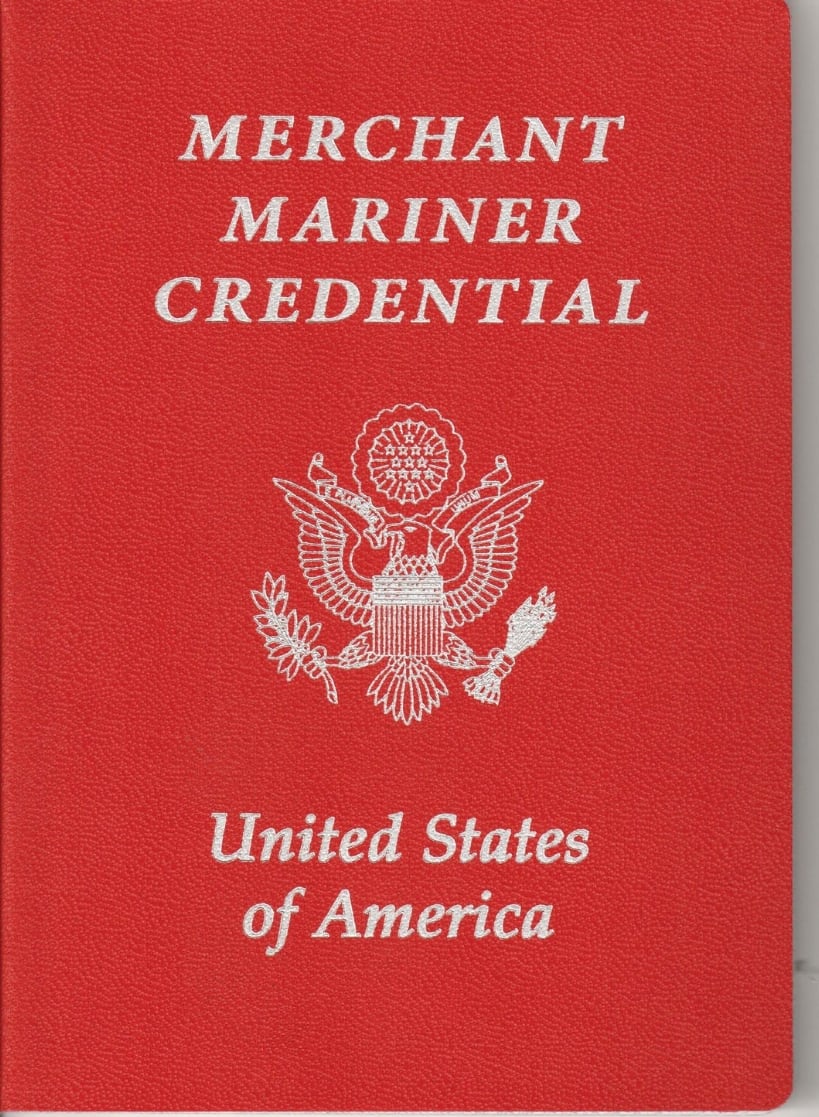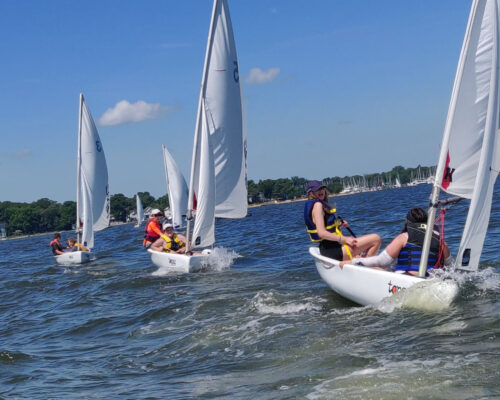The Chesapeake Area Professional Captains Association’s expands its offerings and website.
by Art Pine
CAPCA began, almost accidentally, in the winter of 1989, when a small group of Coast Guard-licensed captains, all graduates of an independent captain’s-license course, began meeting at an Annapolis restaurant to exchange ideas and talk about job opportunities. That gathering grew into a formally incorporated organization in 1992. Since its beginnings, CAPCA has added a continuing education program, regular monthly meetings with guest speakers, and a spate of field trips, tours, and other events. But it’s remained solely a professional association. CAPCA doesn’t host picnics, raft-ups, or group sails around the Delmarva Peninsula. “We leave that to yacht clubs and other organizations,” Washington says. Even so, members occasionally run into some unexpected adventures. Captain Ursula Skagen was delivering a 40-foot sailboat from Bocas del Toro, Panama, to Marathon, Florida, last year when the vessel was overtaken by four pirate skiffs followed by four larger boats loaded with some 30 men. While three of the boats kept pace several yards away, one of the men came aboard, brandishing a knife, and began rifling through compartments and gear-lockers, apparently looking for drugs and weapons. Finding none, the pirates decided to call it a day, pocketed some gear, and left Skagen’s boat. Everyone waved. To Skagen, every trip out on the water contains a lesson to be learned. This one was simple: “Stay way off the Nicaraguan Coast.”.If you’re a longtime Chesapeake Bay boater and haven’t heard of CAPCA, you can be forgiven. This organization of Coast Guard–licensed captains really hasn’t offered much for recreational boaters without mariner’s licenses—until now.
Over the past two years, the group has undergone a makeover with expanded benefits for CAPCA’s members and set up an outreach program to serve recreational boaters as well.
CAPCA meetings feature knowledgeable maritime speakers and are open to the public, and so are some of its continuing education classes, which cover topics ranging from marine radar and basic first aid to offshore safety, survival and medical emergencies at sea. Their redesigned website provides information for the maritime public and links to a wide array of maritime-related organizations. Non-members can sign up for e-mail updates announcing public program offerings, Coast Guard alerts and other maritime-related information. Its new speakers bureau provides a roster of licensed captains to serve as guest speakers for yacht clubs and other maritime groups in the Baltimore-Washington-Annapolis area, free of charge. And CAPCA helps sponsor activities such as the annual maritime industry youth fair in Annapolis and the Annapolis-to-Baltimore sailboat race.
“It’s a different organization from what it was two years ago,” says Captain Bill Washington, the tour boat captain and water-taxi operator who serves as CAPCA’s current president. “We’ve added a lot both for members and for members of the general maritime community as well.”
The makeover began in early 2015, when board members realized that CAPCA’s old website needed upgrading. Developing the new website spawned improvements in CAPCA’s membership programs and led to new opportunities for members. The online job-posting service where an employer would fill out a form, which would then reach more than 300 licensed captains was repackaged to be even easier to use. A crew registry was added for members open to signing on as delivery crew with other captains. The page retains its popular list of maritime links.
CAPCA also provides shore-side mentoring for members who want help on everything from how to handle a docking problem to tips on dealing with problems that come up in boat-delivery jobs. Its meetings are a good place for networking—talking with other captains about job opportunities and challenges.
The group has bolstered its communications program while overhauling its advertising program and internal newsletter, The Log, which is an email blast providing association news and pertinent Coast Guard notices.
CAPCA is growing. In 2017, the organization took in 53 new members—double the total for 2016. Its members hold licenses ranging from the classic “six-pack” license, which authorizes thecaptain of an uninspected passenger vessel to carry up to six passengers for hire, to seasoned mariners who have achieved unlimited, all-oceans licenses that enable them to serve on ocean-going ships. While some members don’t professionally use their licenses, many regularly do, whether full or part-time. Most of the working CAPCA members are employed on small passenger vessels such as tour boats, water taxis, towboats, and charter boats, or they serve as delivery captains ferrying recreational boats from one port
to another.
Washington is typical of the working captains that CAPCA attracts. Retired from his professional career as a computer graphics specialist, he now serves a part-time captain on tour boats and water-taxis, and has ferried some private yachts up and down the East Coast.
Art Pine is a Coast Guard-licensed captain and a longtime sailor and powerboater on Chesapeake Bay.



